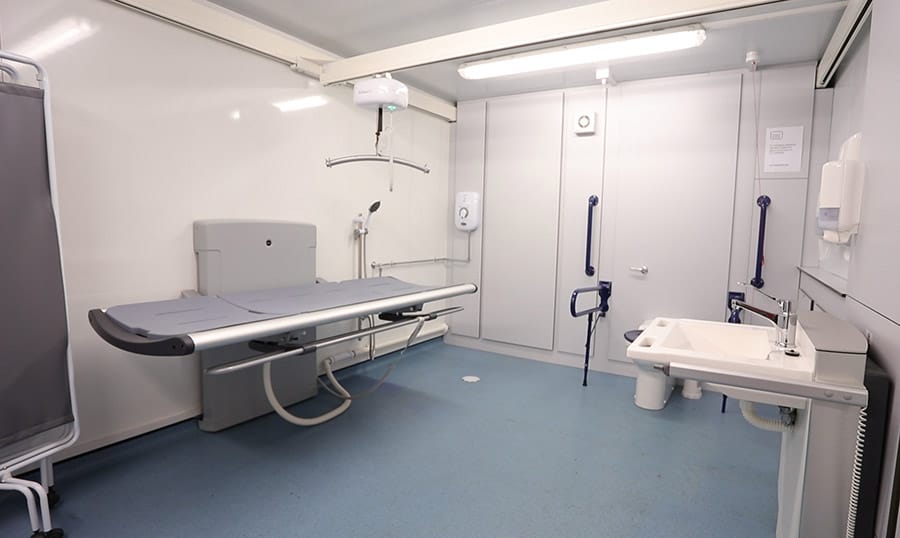Big Changing Places changes and big opportunities for the industry

In this year’s Budget, chancellor Rishi Sunak MP committed a £30 million investment to increase access to Changing Places toilets. The sum drew media attention, however, an arguably bigger announcement managed to slip by relatively unnoticed – an imminent change to building regulations. As the industry comes out of the other end of the current coronavirus chaos, investing in the ability to supply and install Changing Places facilities may be a lucrative opportunity to help companies to recover.
With more than a quarter of a million people in the UK requiring assistance to use the toilet, including those with spinal injuries and multiple disabilities, Changing Places facilities provide the essential equipment and space needed for people to use the toilet in dignity.
Without the facilities, people with profound and multiple disabilities are often forced to be laid on unhygienic toilet floors or feel unable to leave their homes, fuelling isolation and exclusion.
In the UK, the number of registered Changing Places now sitting over 1,400 – a sharp increase from the 140 in 2007.
The rise in installations is attributed to the Changing Places Consortium: a coalition consisting of PAMIS, Muscular Dystrophy UK, CAE and the Scottish Government, campaigning for Changing Places to be widely accessible throughout the UK.
It has also given rise to an increase in central funding from the government to help promote the installation of the facilities across various areas, including motorway services providers and NHS trusts.
Big funding commitment
In the 2020 Budget, the largest Changing Places spending commitment was announced by Rishi Sunak, Chancellor of the Exchequer, allocating £30 million to the newly-created Changing Places Fund.
The new program will see the Government match-fund the costs of installing the facilities into existing buildings in England, with government working closely with the Changing Places Consortium and others to identify sectors where the provision of the facilities need to be accelerated the most.
“Where people shop, go out, or travel should not be determined by their disability. Yet, currently, the lack of the right facilities can prevent some people from enjoying the day-to-day activities many of us take for granted,” commented Sunak.
“I want to change that, which is why my Budget this week is about spreading opportunity, not only across different parts of the country, but also throughout our communities.”
As a minister at the Ministry of Housing, Sunak worked with local authorities and the Changing Places Consortium to champion the facilities and as chancellor, he has continued to support the campaign.
Clare Lucas, Head of Policy and Campaigns at Muscular Dystrophy UK, said: “Going to the toilet is a basic human right, yet too many disabled people are denied that right because of a lack of Changing Places toilets. We are pleased the government has recognised the need for more of these facilities and is making such a significant investment.”
Big change to new builds
Alongside the new Changing Places Fund which will help support with the fitting of Changing Places facilities in existing buildings, the government also confirmed that new, or majorly refurbished, large buildings used by the public must have Changing Places toilets.
A Budget 2020 policy paper stated: “The government is determined to see greater provision of Changing Places toilet facilities in new and existing buildings. These facilities are designed to provide sufficient space and equipment for people who are not able to use the toilet independently.
“Following on from a consultation in 2019, the government will change building regulations guidance by the end of this year to mandate the provision of Changing Places toilets in new public buildings.”
According to the government, the change in building regulations is expected to add the toilets to more than 150 new buildings each year, including shopping centres, supermarkets, cinemas, stadiums and arts venues.
For suppliers and installers of the facilities across England, the change will lead to an increase in demand amongst building developers, contractors and architects who may not be au fait with the Changing Places requirements, equipment and specifications.
Those companies in the trade quick to react and focus on engaging & educating these key customer groups about Changing Places will likely be the ones to enjoy the most success following the building regulation changes and additional government funding.


